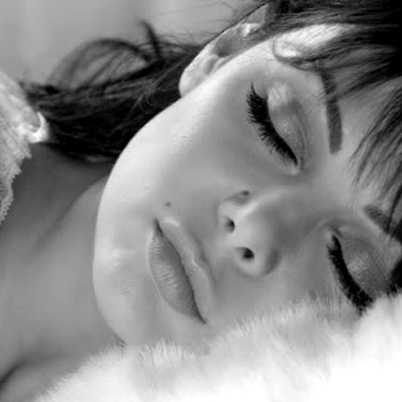Ah, the all-nighter. You think you're a badass for staying up all night on a caffeine-fueled bender, but whether you're wrapping up a deadline in the wee hours or dancing on tables at an after-hours speakeasy, sacrificing just one night of sleep is hell on your body.
We're not just talking about drooling all over your laptop the following afternoon or being uncharacteristically grouchy. We're talking harmful effects that are short-term and long-term, physical and emotional and, most frightening of all -- irreversible. If you're still channeling your college heydays, here are five reasons you should never pull an all-nighter again.
We're not just talking about drooling all over your laptop the following afternoon or being uncharacteristically grouchy. We're talking harmful effects that are short-term and long-term, physical and emotional and, most frightening of all -- irreversible. If you're still channeling your college heydays, here are five reasons you should never pull an all-nighter again.
There's a reason sleep deprivation is a popular torture technique. When you pull an all-nighter, your cortisol (aka stress hormone) levels spike. Typically, cortisol levels drop as you approach your regular bedtime, but studies found that after just one night of no sleep, cortisol in sleep-deprived individuals decreased six times slower the following night than control subjects' who were snoozing as usual. The end result? A major cortisol buildup. High levels of the "stress hormone" reduce your ability to handle stress, making you more prone to panic attacks and chronic depression. The buildup also kick-starts a vicious cycle: you're tired during the day and can't sleep at night as your stress and the hormone begin to pile up. Best of all? Several studies have linked cortisol to high levels of belly fat in women.
Research has shown that when you're sleep deprived, the number of T-cells (white blood cells) goes down and the number of inflammatory cytokines (small proteins that relay signals to other cells) goes up, making your body more susceptible to catching colds and flus. Pulling all-nighters can also make your flu shots null and void by suppressing your immune response. This causes your body to develop fewer antibodies to certain vaccines, making your body slow to respond to immunizations -- so you're more likely to catch the flu and keep it.
Another thing you're likely to catch with a case of the sniffles? Heart disease. Studies show the less you sleep, the higher your levels of C-reactive protein (CRP), a protein that rises in response to inflammation and researchers believe plays a crucial role in marking the development of heart disease. It's not a coincidence that your mortality also rises when you log lower than six hours of sleep a night.
Another thing you're likely to catch with a case of the sniffles? Heart disease. Studies show the less you sleep, the higher your levels of C-reactive protein (CRP), a protein that rises in response to inflammation and researchers believe plays a crucial role in marking the development of heart disease. It's not a coincidence that your mortality also rises when you log lower than six hours of sleep a night.
A sleepless night also messes with leptin and ghrelin levels, two hormones involved in regulating your appetite. In a nutshell, leptin tells your brain when you're full and when your body should start burning calories. Ghrelin tells your brain when you need to eat and when it should stop burning calories to store that energy for fat.
When you stay up for 24 hours (or more), your leptin levels plummet and ghrelin levels increase, which sends both an "I'm hungry" signal to your brain and a message to stop burning those calories. The end result: unhealthy binging (because you're not eating broccoli at 2 a.m., you're eating cheese puffs dipped in frosting) and a sluggish metabolism. Sleep deprivation and its ties to appetite regulation has also been linked to disrupting the way your body regulates blood sugar and processes sugar into energy. Pull an all-nighter and it's hard for your filtration system to filter out glucose -- so much so that your kidneys start to look like a 60-year-old diabetic's, your insulin resistance goes up ... as does your risk of type 2 diabetes.
When you stay up for 24 hours (or more), your leptin levels plummet and ghrelin levels increase, which sends both an "I'm hungry" signal to your brain and a message to stop burning those calories. The end result: unhealthy binging (because you're not eating broccoli at 2 a.m., you're eating cheese puffs dipped in frosting) and a sluggish metabolism. Sleep deprivation and its ties to appetite regulation has also been linked to disrupting the way your body regulates blood sugar and processes sugar into energy. Pull an all-nighter and it's hard for your filtration system to filter out glucose -- so much so that your kidneys start to look like a 60-year-old diabetic's, your insulin resistance goes up ... as does your risk of type 2 diabetes.
At night, your skin kicks into catabolysis -- a renewal mode where more blood circulates, cell debris is removed and recycled, and your skin repairs all the damage of the day. When you don't sleep, your skin is forced to skip the catabolysis stage, meaning your face holds all onto inflammation, debris, free radicals and puffiness and literally ages faster. Hey, it's called beauty sleep for a reason. Studies show that poor sleepers have more wrinkles, uneven tone and less elasticity than those who hit the hay. Sleeping is basically the easiest anti-aging remedy ever.





